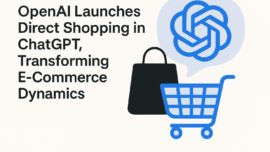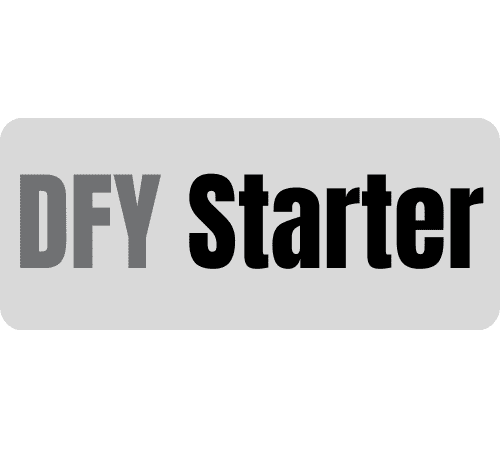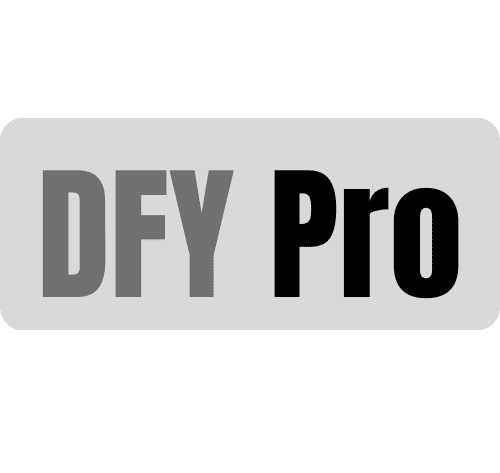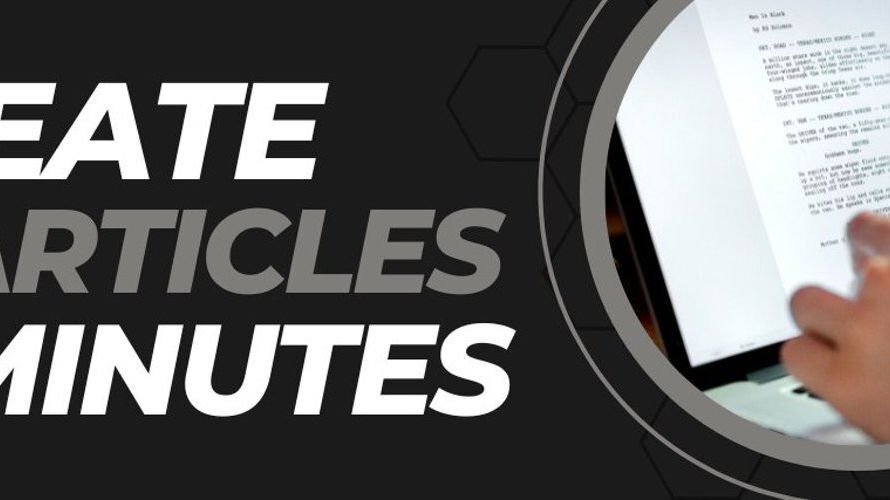
OpenAI is making waves in the e-commerce landscape by introducing instant shopping capabilities within ChatGPT, revolutionizing the way users buy products online while creating new revenue streams for the company.
Contents
- Short Summary:
- The Dawn of In-Chat Commerce
- Transforming User Experience
- Starter DFY Package (with Keyword Research and Topical Map Creation)
- Pro DFY Package (with Keyword Research and Topical Map Creation)
- Mid-level Premium Plan
- Trial Plan (15 Credits – 7 Days)
- Ultimate Yearly Plan
- Enterprise Yearly Plan
- Business Yearly
- Corp DFY Package
- 200 Non-Expiring Credits
- Senpai DFY Package
- Pro DFY Package
- Starter DFY Package
- Premium Plan – Yearly
- Standard Plan – Yearly
- Premium Plan
- Regular Plan – Yearly
- Regular Plan
- Standard Plan
- A New Revenue Landscape for OpenAI
- E-Commerce Integration: Redefining Product Discovery
- Personalization is Key
- Implications for Marketers
- Advertising Dynamics Shift
- OpenAI’s Perspective on Advertising
- Challenges and Considerations
- The Future of AI in Shopping
- FAQ
- Do you need SEO Optimized AI Articles?
Short Summary:
- OpenAI has unveiled a new feature, Instant Checkout, that allows users to make purchases directly through ChatGPT.
- Initially supporting Etsy sellers, the feature is set to expand to over a million Shopify merchants, including popular brands.
- The integration aims to transform the user shopping experience and has significant implications for traditional e-commerce and advertising models.
The Dawn of In-Chat Commerce
In a striking development for digital interactions, OpenAI has launched Instant Checkout, marking an evolutionary leap in how users engage with e-commerce through ChatGPT. This new feature, powered by the Agentic Commerce Protocol in collaboration with Stripe, allows millions of users to shop directly within the chat interface, eliminating the need to redirect them to external merchant websites. As over 700 million individuals utilize ChatGPT weekly, this innovative step opens a world of possibilities for e-commerce and user engagement.
Transforming User Experience
Traditionally, shopping experiences on ChatGPT involved users receiving product recommendations with links to external sites where they would finalize their purchases. However, Instant Checkout changes the game by enabling seamless transactions without leaving the chat. This functionality is initially available for single-item purchases from U.S. Etsy sellers, with plans to roll out support for an extensive list of Shopify merchants soon, including iconic brands like Glossier, SKIMS, Spanx, and Vuori.
“We’re taking the first steps toward ChatGPT helping people buy
,” said an OpenAI spokesperson. “For shoppers, it’s seamless: go from chat to checkout in just a few taps.”
A New Revenue Landscape for OpenAI
For OpenAI, monetizing its vast user base has become more vital than ever. The integration of shopping features offers a fresh avenue for revenue generation. By charging a small fee for merchants on each transaction, OpenAI is poised to diversify its income streams beyond subscriptions—an essential move given the company’s hefty operational costs. As OpenAI seeks to stabilize its financial footing, this model allows it to maintain free services while capitalizing on its chatbot’s growing influence.
OpenAI’s existing revenue models predominantly revolve around subscriptions like ChatGPT Plus and enterprise deals. Yet, with a valuation nearing $300 billion, the quest for profitability remains a priority. The opportunity to earn through transaction fees aligns perfectly with the broader aim of enhancing user experience, ultimately leading to sustainable growth.
E-Commerce Integration: Redefining Product Discovery
The shift towards direct purchasing in ChatGPT not only improves user convenience but also fundamentally alters how consumers discover products online. As users gravitate towards AI for tailored recommendations, traditional platforms like Google could face stiff competition. Instead of navigating search engines, consumers might start favoring the personalized shopping experiences that conversational AI offers.
Markdown-style product discovery, where recommendations are filtered through advanced algorithms reflecting user preferences and historical interactions, could prove irresistible. ChatGPT now suggests products based on budget, quality, and availability, boosting the likelihood of purchase conversions.
Personalization is Key
One of the hallmark features of Instant Checkout is its emphasis on personalization. Enhanced AI memory capabilities mean that as ChatGPT interacts with users over time, it will learn their preferences and deliver increasingly relevant product recommendations. For example, if a user regularly seeks out outdoor accessories, ChatGPT can intelligently prioritize such categories during its recommendations.
“This level of personalization enhances the shopping experience significantly and improves transaction success rates,” noted a senior product strategist at OpenAI.
Implications for Marketers
With e-commerce now integrated within ChatGPT, marketers need to rethink their strategies. This evolving landscape, often referred to as ‘AI optimization’, resembles the traditional concepts of search engine optimization (SEO), albeit specifically targeting AI platforms. Businesses will need to optimize product listings for visibility within the AI-driven environment, focusing not only on descriptions but also on images and pricing strategies.
Advertising Dynamics Shift
The advent of AI commerce introduces pressing questions about traditional advertising models. OpenAI’s transaction fee structure may conflict with conventional paid placements in the online advertising ecosystem. Industry professionals are already deliberating over how to maintain visibility in an environment where relevance and context govern product discovery.
“How AI will handle user preferences and fairness in recommendations remains to be seen. This could fundamentally change how products are marketed,” said a leading digital advertising executive.
OpenAI’s Perspective on Advertising
Despite previous hesitancies regarding direct advertising strategies, OpenAI’s financial imperative has led to a pragmatic reassessment. CFO Sarah Friar acknowledged the potential for selective advertising within the platform if it aligns with users’ best interests. The balance lies in OpenAI’s commitment to user experience while exploring revenue-generating avenues.
CEO Sam Altman articulated that while OpenAI may sidestep pay-for-placement advertising, the introduction of affiliate fees on purchases signifies a shift in their approach. This strategy merges the necessity of profitability with a focus on enhancing the user experience. As OpenAI treads into this novel territory, its commitment to transparency and relevance will be paramount.
Challenges and Considerations
While the move to integrate e-commerce in ChatGPT carries enormous potential, it isn’t without challenges. Chief among these is user privacy and data security. As ChatGPT collects more data to refine personalization, it must uphold its obligations to handle user information responsibly and with transparency.
Moreover, there’s concern about the fairness of algorithmic recommendations. OpenAI’s systems must ensure equitable representation of products to prevent skewed consumer choices. Striking a balance between personalization and neutrality in recommendations is essential for maintaining user trust.
The Future of AI in Shopping
As OpenAI readies itself to launch comprehensive e-commerce capabilities within ChatGPT, it stands at the forefront of a paradigm shift in the landscape of online shopping. This move heralds a new chapter not only for consumers but also for retail and advertising industries that must adapt to a changing marketplace.
The trajectory of AI-driven shopping is set to transform how consumers interact with brands and navigate their purchasing journeys. This burgeoning intersection of commerce and AI signifies a bold new future, one that promises to redefine user engagement across digital platforms.
FAQ
What will be the primary features of e-commerce in ChatGPT?
The key features will encompass the ability to browse products, receive tailored recommendations, and finalize purchases directly within the ChatGPT chat interface.
How is OpenAI expected to generate revenue from its e-commerce model?
OpenAI plans to monetize through commission-based fees from merchants for transactions conducted via the platform, alongside potential affiliate revenue.
Will users’ data remain secure during shopping through ChatGPT?
OpenAI has pledged to handle user data with the utmost care, though ongoing discussions will be vital to address privacy and security concerns as these features are implemented.
How will this new feature impact traditional shopping methods?
The integration of e-commerce in ChatGPT could lead to a decline in reliance on conventional search for product discovery, reshaping online shopping dynamics and consumer behavior.
As we observe these rapid changes, the intersection of AI and e-commerce, especially within platforms like ChatGPT, could dominate discussions in the tech and marketing spaces in the coming years. Stay updated with the latest developments in this exciting domain at Latest AI News and explore further insights into the Latest SEO News for more on how AI impacts the broader digital landscape.
Do you need SEO Optimized AI Articles?
Autoblogging.ai is built by SEOs, for SEOs!
Get 30 article credits!














